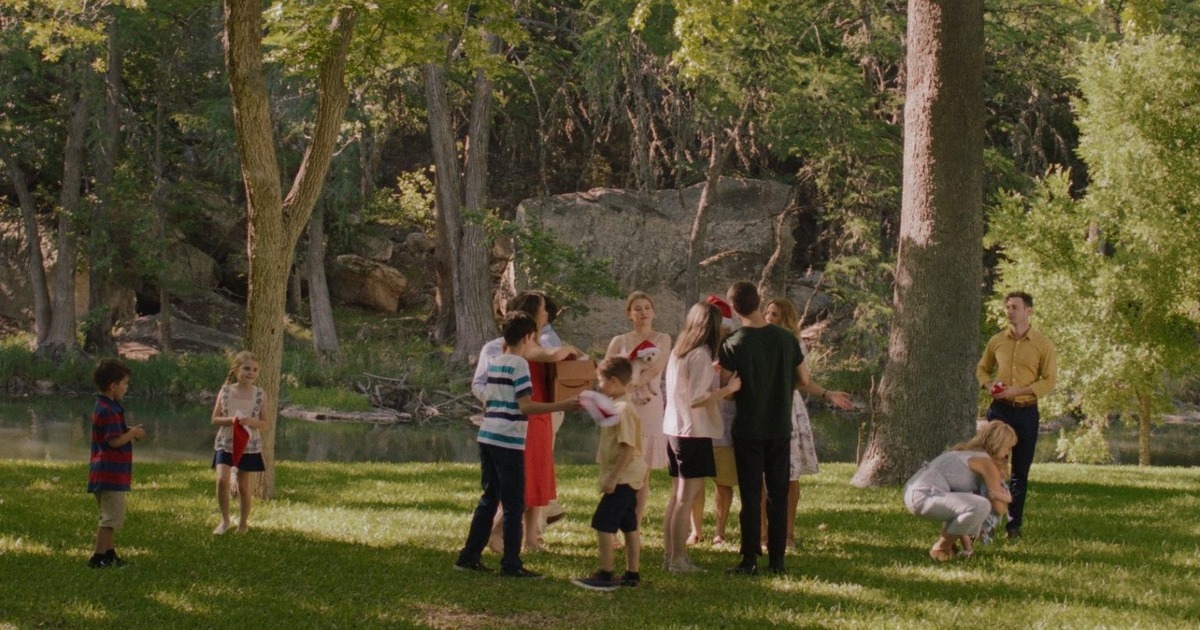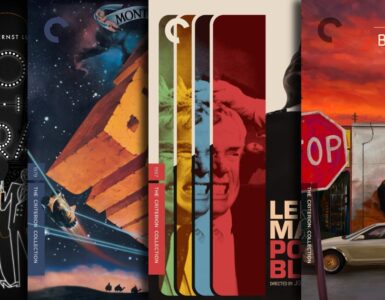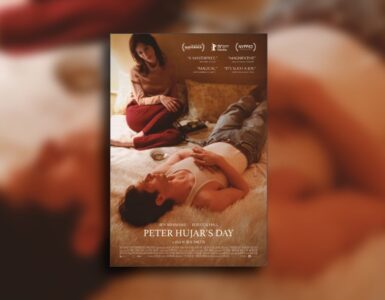
There are few films in the year 2024 with an opening scene as perfectly encapsulating of the film writ large as the first five minutes of director Lucy Kerr’s new feature length stunner, Family Portrait.
The film introduces viewers to Katy (played brilliantly by the ever-incredible Deragh Campbell), who attempts to gather her family, both old and young, to collectively take a family portrait on what appears to be a beautiful day. Dialogue only really seeps into the scene near its conclusion, instead carrying with it an eerie, unsettling energy to the proceedings, with Katy’s increasingly frustrated demeanor pairing perfectly opposite the tension-building sound design.
This is an auspicious opening sequence, one that smacks of a filmmaker utterly assured in their voice and their hand, which would be something to take wonder in, and even more so when one discovers that this is Kerr’s directorial debut. And what’s even more impressive is just how potent this voice and hand are throughout this inspired 72-minute-long stunner.
From this opening scene we meet Katy’s family, an upper-middle class Texas clan with a vacation home that feels sprawling and stripped of any real vitality by a certain type of class posturing. Olek (Chris Galust) is the fish out of water here, Katy’s photographer beau who is, for instance, mistaken as Russian (he’s Polish) by Katy’s family. See, Olek isn’t allowed to be in the photo since he and Katy aren’t married, which, beyond the misunderstanding of his heritage, only compounds his feeling of otherness within this incredibly specific world.
This type of “family portrait” for lack of a better phrase isn’t rare in cinema. However, what makes this debut feature so profoundly compelling is both the conviction in its director’s hand as well as the way that that hand guides the film effortlessly into the realm of the utterly surreal. In one of the film’s more thrilling scenes, Katy’s father begins waxing poetic about a photograph of her grandfather, ultimately concluding the sequence with a diatribe that all but states the film’s main theme of photographs being little more than propaganda.
Family Portrait is, at its very core, an experiment in the powers of sound design in cinema. Throughout the film Kerr experiments with things like overlapping dialogue and sounds that are completely disconnected from the things actually occurring on screen. The best example of this is the film’s crescendo, a scene soundtracked by a train that may or may not actually be running in the background or maybe just simply in our lead character’s head. Things like a motor beginning to run after Katy returns from a swim become things of genuine existential terror, glancing towards an inherent unease permeating throughout Kerr’s vision of a malignant suburban milieu.
Performance-wise, the film is also quite astonishing. Campbell remains maybe the most fascinating actress working today, perfectly embodying Katy’s increasing frustration, and Galust is also quite great. Robert Salas and Silvana Jakich are solid here as well, both of whom feel startlingly fleshed out in their roles, particularly Salas whose confrontational skepticism feels, as with most things here, particularly biting in its class specificity.
That all being said, this is first and foremost a statement from a filmmaker beyond her years. There’s one scene in particular that speaks to Kerr’s maturity as a filmmaker. After being unable to find her mother, Katy goes on the literal hunt for her, which is made literal by a shift in directorial style for the briefest of moments. Viewers watch as the camera follows a frustrated Katy as she bolts through the cavernous house looking for her mother, all in one fluid camera movement. It’s a brief moment, maybe only a few seconds, but this break in style, if images are to be questioned here, feels in many ways like a break in the film’s reality. From here Katy enters the woods, and for the next half hour the film fully embraces its more surreal ambitions, ultimately concluding by directly contradicting itself. Remember, images are not to be believed. An astonishing work of absolute genius.





